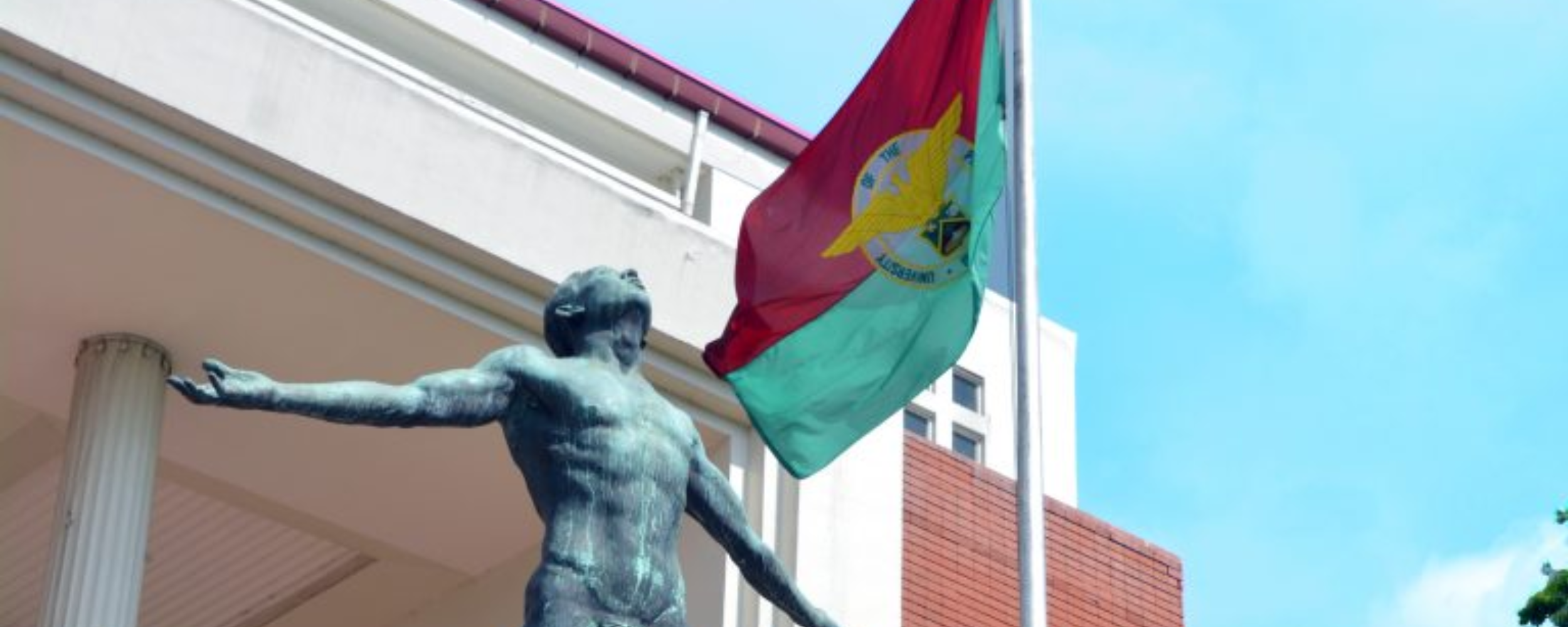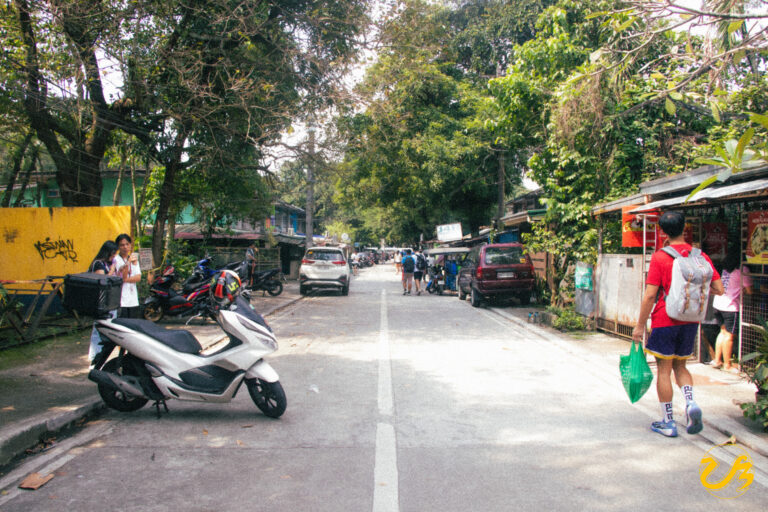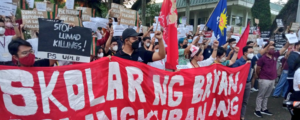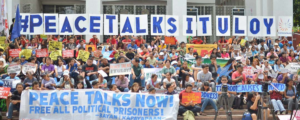
The College of Social Sciences and Philosophy Student Council (CSSP SC) highlights the significance of ensuring the inclusion of the social sciences programs in the return to face-to-face classes in this year’s 53rd General Assembly of Student Councils.
The CSSP SC, with UPV College of Arts and Sciences Student Council, UPM College of Humanities and Social Sciences Student Council, UPM College of Arts and Sciences Student Council, and the UPLB College of Arts and Sciences Student Council, authored a resolution to clamor for the conduct of face-to-face class activities for humanities and social sciences programs.
Investigating the humanities and social sciences situation
Entitled “A resolution to intensify campaigns for greater funding and the safe return to face-to-face classes for humanities and social science courses,” it zeroes in on the crucial role of the social sciences especially amid the current political climate, and how it has been severely neglected in the Philippine education system.
CSSP SC vice chairperson Veronica Consolacion divulged that the process in crafting the resolution further surfaced long-standing issues in relation to the social sciences, transcending the academe. The resolution cites the prevalence of blatant historical distortion and the rampancy of state-sponsored attacks and harassment which necessitates the crucial role of the social sciences to combat such issues.
For instance, last 2021, the Commission on Higher Education (CHED) – Cordillera Administrative Region (CAR) issued Regional Memorandum no. 113 which banned deemed “subversive” learning materials. This was repeated in a stint by the Komisyon ng Wikang Filipino (KWF) ordering the removal of anti-Martial Law books, all of which red-tagged as “subversive” are merely pieces critical of the state and the Marcoses.
Likewise, in the face of historical narrative manipulation by the Marcoses, there remains the absence of Philippine History in high school following the Department of Education’s (DepEd) order in 2014. National literacy is further worsened given the removal of both Filipino and Panitikan in undergraduate programs’ GE curriculum, owing to CHED Memo no. 20.
Further educational crisis arises in the face of Trade secretary Alfredo Pascual’s proposal to remove general education (GE) courses in college to cater to learning more favorable to the demands of private firms and companies. Critics have lamented the neoliberal suggestion raises threats to entrench Philippine society to a deeper crisis in education.
As the resolution’s primary demands, Consolacion asserts to 1) raise the discourse on the crucial role of the HSS as an academic and professional field, 2) push for greater funding and opportunities, and 3) campaign for the immediate and safe return of HSS programs to fieldwork.
Humanities and social sciences in the education sector
Given the commercialized nature of the current education system, the humanities and social sciences remain the least prioritized and underfunded. Most programs given primary focus by the government are STEM and ABM programs, divulging how the education system has been catering to the demands of the global labor market.
This is further proven following Bongbong Marcos, Jr.’s first State of the Nation Address (SONA) where plans for the HSS are clearly lacking. Instead, Marcos, Jr. highlighted investment in STEM-related courses and the development of students to speak English better in favor of foreign interests.
Additionally, with the recent shifts to limited in-person set-ups, HSS programs remain neglected.
Currently, social sciences programs even in the University of the Philippines Diliman are compliant with Model 1, whereby class activities are to be held completely online.
“Although we do not have the same laboratory classes as required by other disciplines, it is highly vital for us to be provided with learning opportunities with the masses,” Consolacion asserted in an exclusive interview with SINAG.
“One of the ways this can be done is through mass integration, through fieldwork.”
Consolacion states network and alliance-building are strongly eyed in order to collectively forward urgent campaigns.
Respectively, at the department level, the council will remain consultative and responsive to the concerns of the majors, crafting the “Balik PamantASan” position paper based on the majors’ needs.
On the college level, continuous dialogues are ensured in order to better address demands in relation to the return to a physical set-up. In particular, the council is hoping to seek updates on which facilities are ready for F2F conduct of class activities. This includes the calls for safe and conducive spaces for students to study and learn in (i.e. opening of study halls and libraries), and for college organizations to reclaim.
Additionally, Consolacion laid out the following demands to the CSSP administration:
- Student representatives to the planning committees crafting the F2F roadmap of the college and departments
- Cohesive and complete F2F guidelines for the CSSP majors
- Consultative Townhall dialogues with the CSSP major
- Scholarship granting and assistance for HSS majors
- Prioritise a consolidated f2f roadmap encompassing the entire college with particularities per department instead of disjointed f2f planning per department
With this, Consolacion enjoined the CSSP administration to join the students in their calls for greater funding and prioritization of humanities and social sciences programs for F2F, as well as in standing firm against and condemning the attacks on the CSSP community.
The urgent task of today’s social scientists
The current political climate furthers the call for the Konsensiya ng Bayan to stand guard and be critical of the attacks directed by the state to the people, Consolacion pronounced as she highlighted the “significant role to play” in the face of blatant historical distortion and a militarist approach to the long-standing crisis.
Given the latent erasure of the humanities and social sciences in the education sector, there also remains a crisis in the development of critical-minded youth, able to debunk and combat the Marcos-Duterte administration’s anti-people agenda.
“As social scientists, most of the theory and framework we follow is based on foreign context. This is why in the academic field, it is a challenge for us to localize these theories; make sense of the lived experiences, culture, and struggle of the Filipinos,” Consolacion noted.
Ultimately, the resolution calls for the persistence in lobbying for support and prioritization of the humanities and social sciences, citing the need to increase funds for more scholarship grants, student aid, academic support, and retrofitting of facilities for a safe and inclusive return of the HSS disciplines to a physical set-up.
Such efforts, if ensured and forwarded, would enable the actualization of putting theory into practice, localizing and making the social sciences accessible and comprehensible to the Filipino people, thereby contributing to nation-building premised on the concrete conditions of the Philippine society.
“Confronting the ills of society requires closely analyzing and constantly criticizing it. How can we investigate and study society if we are not with the people?”
#GASC53
Featured image courtesy of University of the Philippines Diliman website








Good site! I really love how it is simple on my eyes and the data are well written. I am wondering how I might be notified when a new post has been made. I have subscribed to your feed which must do the trick! Have a nice day!